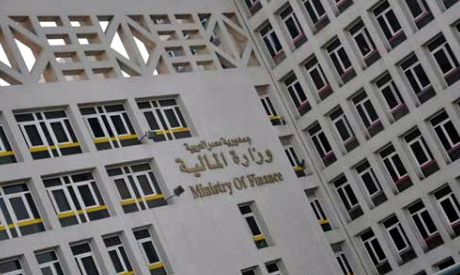
Cairo's headquarters of the Egyptian ministry of finance (Photo: Al-Ahram)
Egypt's president Abdel-Fattah El-Sisi ratified amendments to the income tax law, lowering the tax ceiling and ending the wealth tax, according to the official gazette published on 20 August.
The amendments reduced the top income bracket to begin at LE200,000 per year, down from LE250,000. The tax rate for this bracket will now be 22.5 percent compared to 25 percent before the amendments.
A temporary five percent wealth tax had been imposed at the start of last fiscal year, affecting earners of more than one million Egyptian pounds. It was due to run for three years but the amendments have changed its duration to one year, meaning it has now finished and no longer applies.
The amendments also raised the upper limit of the first income bracket – which is exempt from income tax – to stand at LE6,500 per year, up from LE5000.
This raises the current upper limit for tax exemption to LE13,500 annually from LE12,000, as the income tax law stipulates that a maximum limit of LE7,000 in annual income is added to the exemption limit.
Those in the second bracket (earning between LE6,500 and LE30,000 annually) pay 10 percent income tax; the third bracket (from LE30,000 to LE45,000) pay 15 percent; the fourth (between LE45,000 and LE200,000) pay 20 percent.
In March Egypt's economy ministers agreed to unify the income tax ceiling at 22.5 percent to include the new special economic zones. But these presidential amendments did not include the new special economic zones.
In addition, the amendments make no mention of the economy minster's stated desire to fix tax rates for ten years.
Egypt's president holds total legislative authority in the absence of a parliament.
As part of Egypt's five-year fiscal reform programme, the government has cut subsidies and introduced new taxes, including the property tax, aimed at reducing the country's ballooning deficit.
A long-delayed value-added-tax is also expected to be approved in under a month, the finance ministry source told Ahram Online.
However, the government has not yet raised fuel prices this year as Egypt - a net importer - seeks to benefit from an oversupply in global markets that has led to a plunge in oil prices.
Egypt's deficit is projected at 8.9 percent of GDP in the fiscal year 2015/16, down from an estimated 10.8 percent in the previous fiscal year.
Short link: